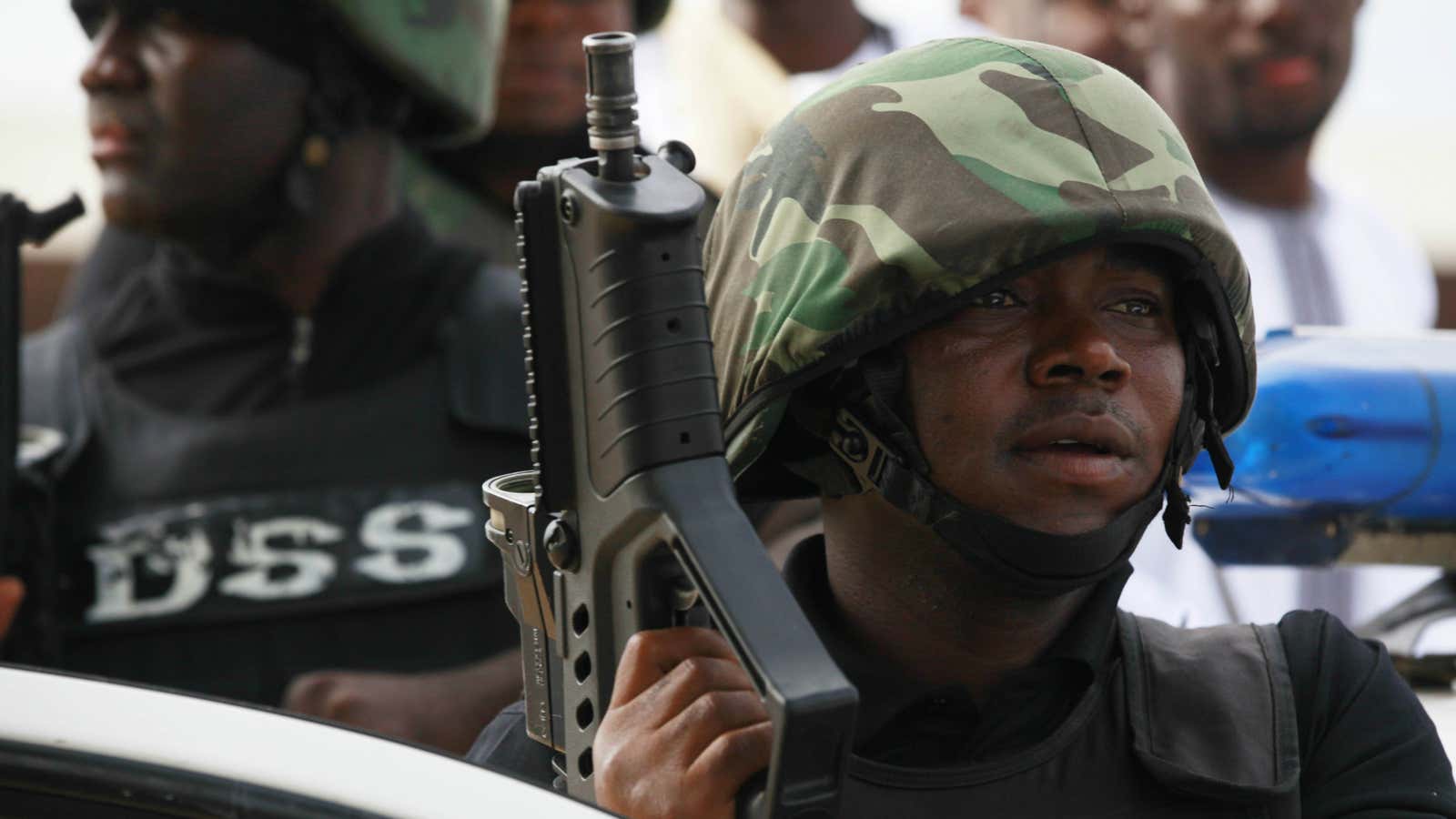In less than a week, Nigeria’s military has railed against two major international organizations operating in the country.
On Friday (Dec. 14), the military banned operations by the United Nations International Children’s Emergency Fund (UNICEF) in Nigeria’s volatile northeast claiming the agency spied for Boko Haram terrorists operating in the region. The army claimed UNICEF staff were sabotaging its counter-terrorism efforts by alleging human rights abuses by the military. But in a swift turnaround just a few hours later—reportedly due to high-level diplomatic talks involving the UN and the United States—the army lifted its ban on the agency.
With the dust over that spat yet to settle, the military has now alleged Amnesty International, the human rights group, is out to “destabilize” and “dismember” Nigeria. The army’s grouse is linked to a new Amnesty International report which claims security forces ”did nothing to stop or prevent” violent attacks in clashes in the country’s middle belt region between farmers and herdsmen despite receiving tips to alert them. The farmer-herdsmen violence has grown to become Nigeria’s biggest internal security threat. Amnesty’s report says the violence claimed over 3,600 lives between January 2016 and October 2018.
The report also accuses the Nigerian army of human rights violations in areas affected by the crisis. For its part, Nigeria’s military says the report is “concocted” against it and has called for the closure of Amnesty International’s local offices. It’s not the first time the Nigerian army has been called out for human rights violations in an Amnesty International report: the group has previously claimed Nigeria’s military has arbitrarily detained and killed civilians in the fight against Boko Haram terrorists and has called for senior military officials to be investigated for war crimes.
The Nigerian army’s denials would have carried more weight in previous years but it’s betrayed by recent events. Just last month it claimed soldiers had been provoked into opening fire and killing unarmed demonstrators during protests by a religious group in Abuja, Nigeria’s capital. But new video analysis by the New York Times shows that was “clearly” not the case.
Cheta Nwanze, a researcher at SBM Intelligence, a Lagos-based geopolitical analysis firm, says the army’s public push-back is essentially about self-preservation. “The Nigerian Army has a history of human rights abuses, and covering up those abuses. These NGOs on the other hand, have a duty to talk about such actions, and report them,” says Nwanze. “If the army accepts those reports, the army then has a duty to find, and discipline the officers involved. It’s anyone’s guess how far up such a process will go, and who it will take down.”
Sign up to the Quartz Africa Weekly Brief here for news and analysis on African business, tech and innovation in your inbox
